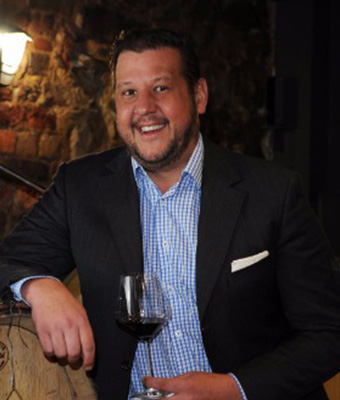The Business of Wine
CULTIVATE A THRIVING WINE BRAND
Course Overview
The Business of Wine course is South Africa's only specialised programme that teaches delegates how to navigate the business side of the wine industry. Designed for industry professionals across the entire winemaking value chain, this course offers advanced business knowledge, practical skills, and deep economic insights, equipping you with the tools to build a thriving and internationally competitive wine business. Delegates will engage in interactive learning experiences while networking with top wine industry figures and like-minded peers.
What you will walk away with
- An advanced and practical understanding of business
- Knowledge of wine business management
- Deep insight into the macro- and micro-economic environment
- Access to a network of like-minded professionals and South African wine experts
- A thorough understanding of wine tourism
- Critical market insight and business acumen in the wine industry
- The leadership skills needed to maximise opportunities in the wine industry
- Insight into regulatory and international trade challenges
A specialised approach
The wine industry is complex and multidisciplinary – and it demands a specialised approach.
This short course is tailored to the needs of the industry. Delegates will learn from some of the most respected wine business practitioners in South Africa. The interactive, practice-driven, case-study approach is easy to engage with and delivers valuable insights along with practical skills ranging from business plan formulation to strategic marketing.
Additional Course information
MODULE BREAKDOWN
Curriculum Overview
Module 1
Introduction to wine business management studies in South Africa
These sessions will introduce delegates to the critical thinking, problem solving, and creative skills needed by contemporary wine business practitioners. It begins with introducing the study of wine business management and the concept of the wine value chain. Delegates will become familiar with core concepts and themes in the field of wine business management. Sessions on key management decisions in wine making and viticulture focus on how to approach value creation in wine production through the lens of differing approaches and models. For example, between biodynamic and conventional producers.
Module 2
Presentations Skills
A professional communications expert will coach delegates on principles and good practices involved in delivering engaging and impactful presentations.
Module 3
Teaching case study analysis
Teaching cases are effective teaching tools that used real life scenarios to teach business principles. As a way of developing critical thinking and problem-solving skills, these sessions and activities will focus on developing effective case study analysis skills.
Business plan/ business model formulation:
Delegates will learn to how to formulate a medium-term business plan using relevant business model innovation techniques.
Module 4
GSB Tasting Academy
A rigorous, tutored, intermediate-level wine judging programme run under the auspices of the prestigious Judging Academy. Delegates will be taught how to identify and, critically and forensically, analyse wines with differing origin, variety, age and style through a highly effective blind tasting methodology.
Module 5
Addressing strategic challenges in the SA wine Industry
This session concentrates on the historic, social and economic development of the South African wine industry and provides key insights into its current industry structure and dynamics. They give critical insight interventions into addressing wicked problems facing South African wine businesses, which are embedded in an emerging market context. These sessions will give delegates insight into the macro and micro economic environment that affects wine businesses in South Africa
Module 6
Business innovation and holistic leadership
These foundational sessions focus on different types of business innovation lenses ranging from strategic, operational, managerial and product innovation models. will be unpacked. Furthermore, various holistic leadership concepts, such as values-based leadership will unpacked throughout the course.
Module 7
Regulatory and international trade challenges in wine business management
These practitioner-driven sessions will give delegates insight into the dynamic regulatory environment and challenges that affect wine businesses in South Africa. It will deal with critical aspects such as: international trade agreements; market access issues; export regulations and exchange rate concerns; certification, standardisation and licensing conventions; aspects of intellectual property related to wine products; and logistics and distribution concerns affecting wine businesses.
Module 8
Strategic management and blue ocean strategy
Delegates will learn how to approach developing and implementing innovative strategic plans and sustainable business models in wine businesses through practical working sessions and case study analysis.
Module 9
Experiential programme
These sessions will take place in the field. Delegates will interact with practitioners in the business environment to connect concepts introduced in the course and contemporary practices.
Module 10
Key financial management decisions in wine businesses
An intensive programme which develops an adaptable understanding of key financial management principles and financing models necessary to create value for stakeholders in wine business.
Module 11
Strategic wine marketing: traditional and emerging markets.
Delegates will learn how to adaptably apply various strategic wine marketing principles and practices to their own organisations in both traditional and emerging wine markets. Delegates will be taught the basics of wine brand strategy both from a tactical and strategic perspective as well as incremental and revolutionary perspective. Delegates will be guided on practical wine business communication techniques and principles focusing on developing and leveraging e-marketing, social media, traditional media and public relations resources.
Module 12
Wine tourism studies
Wine tourism may be seen as a form of consumer behaviour, opportunity to create regional competitive advantage through collaboration and a channel to drive product sales and build brands.
Minimum Requirements:
- NQF4, however an NQF7 is advantageous
Who should apply:
- Professionals working across the wine value chain
- Individuals interested in building a career in the wine industry
- Sommeliers
- Hospitality professionals
- Winemakers
- Viticulturists
- Wine marketers
- Entrepreneurs
- Distributors
- Garagistes winemakers
What our students say
Learn with the best
Our Internationally acclaimed researchers and teachers are all dedicated and gifted individuals who contribute directly to UCT GSB's reputation of excellence.

Course Convenor
Jonathan Steyn is a former restauranteur, wine judge and wine columnist, He has an academic background in Business Administration and holds an international master’s degree in wine business.
Head: Executive Education
Jodie Martin is the Executive Education Head of Department where he leads and supports our world-class Executive Education delivery team.
Client Liaison Officer
Tarryn is a seasoned sales & marketing professional with over 8 years of experience in the higher education short course industry.FAQ
- 15% for 3 - 6 applicants (bulk discount applied from third applicant)
- 10% for 7+ applicants (bulk discount applied to all applicants)
- 10% for alumni of UCT GSB academic and Executive Education courses
The UCT GSB's Breakwater Campus is situated in the heart of Cape Town's most popular tourist attraction, the Victoria and Alfred Waterfront. Centrally located and easily accessed, the UCT GSB is just 1.5km away from the central business district and 20 minutes from Cape Town International Airport.
As an added benefit to studying at the UCT GSB, you'll be situated in one of the most beautiful cities in the world.
Certificate of completion
The course is a non-credit-bearing course delivered at the equivalent of an NQF 8 postgraduate level of study.
The course is accredited through UCT, which is a registered public higher education institution with the Council on Higher Education (CHE). Each programme is accredited through an internal UCT quality assurance process, as delegated by the CHE, ensuring the excellent quality of our offering.
In short, this course does not refer to NQF levels.
TAKE THE FIRST STEP TODAY
Acquire new competencies and move your career to the next level!
UPCOMING EVENTS
Executive Education International Executive Development Programme (IEDP)
Curious about how the IEDP can transform your leadership journey and create real business impact? Join us for this hybrid information session to learn more about this immersive, exploratory, and transformational programme designed for senior executives and future top leaders.
Learn more RSVPIdeas Exchange

Pandemic exposes fault lines in South Africa’s strained wine sector
The COVID-19 pandemic has irrevocably altered the field of South African wine, surfacing existing fault lines under immense strain. Bold leadership could not be more pressing.
Read ArticleRelated Courses

The New Manager
View Course
Finance for non-financial managers
View Course
